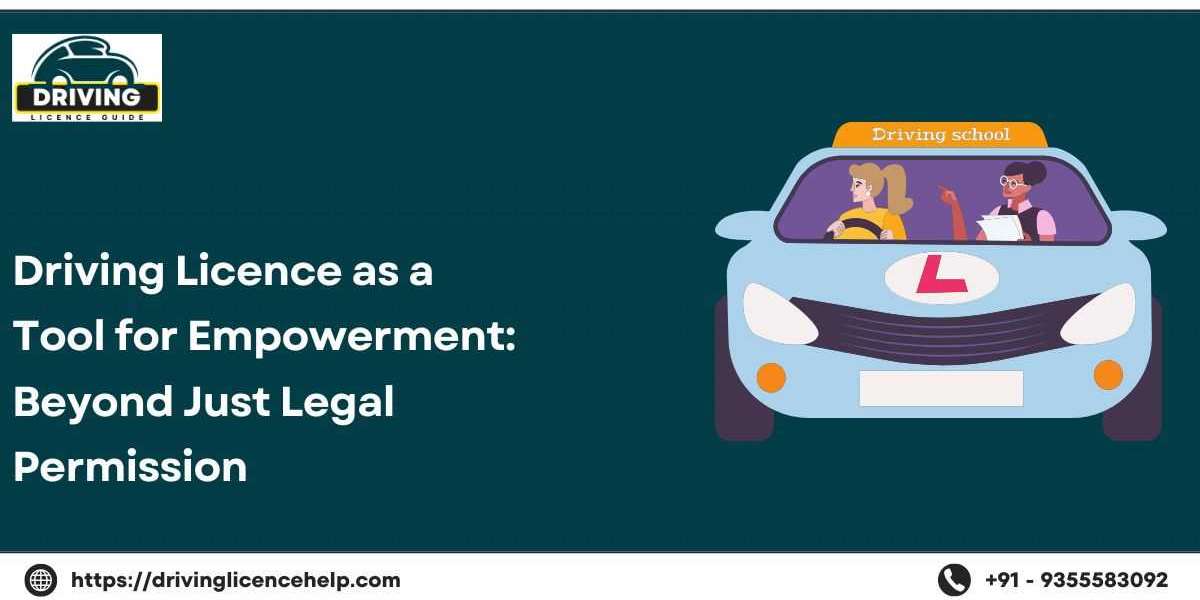Introduction
Most people see a driving licence as a document a legal necessity to drive vehicles on the road. But in reality, it’s much more than just a plastic card in your wallet. A driving licence is a powerful tool for personal, social, and economic empowerment, especially in countries like India, where mobility plays a major role in daily life and livelihood.
This article explores a unique and insightful perspective on the role of a driving licence in transforming lives, particularly for youth, women, and people from rural backgrounds. Let’s go beyond road rules and traffic signs to understand how this small card can open big doors.
The Traditional View of a Driving Licence
The typical definition of a driving licence is simple:
A government-issued document that certifies a person is qualified to operate one or more types of vehicles, such as two-wheelers, cars, or commercial vehicles.
It ensures that the individual knows road safety rules, traffic laws, and vehicle control. In India, it is issued by the RTO (Regional Transport Office) after a learner’s test and a practical driving test.
While this is the technical role, the real-world impact of this licence goes much deeper.
Driving Licence as a Symbol of Freedom
Personal Independence
For young adults, getting a driving licence is a milestone. It’s often their first legal document and represents adulthood, responsibility, and independence. No longer do they have to rely on others for transportation.
Example: A college student in a small town who gets a two-wheeler licence can now travel for studies, internships, and part-time jobs.
Mobility Equals Opportunity
In a fast-moving world, access to mobility means access to opportunities — jobs, education, healthcare, and social life. A driving licence makes all this possible without depending on public transport or others.
Women's Empowerment Through Driving Licence
Breaking Stereotypes
In many parts of India, especially rural areas, women are discouraged from learning to drive. But when a woman obtains a driving licence, she breaks a social barrier.
She is not just driving a scooter or car — she is driving change.
Safer, Self-Reliant Travel
With a licence, a woman doesn’t need to wait for someone to take her to work, school, or the hospital. It improves her safety, freedom, and dignity.
Example: A woman health worker in a village can cover multiple areas on her scooter without depending on others, ensuring timely medical visits.
Economic Benefits
Licensed women can take up jobs as delivery agents, cab drivers (e.g., under Uber/Ola), or start their small transport services, adding to family income.
Driving Licence and Employment
A driving licence can directly unlock a wide range of job opportunities, especially for people with limited educational qualifications.
Commercial Driving Jobs
With a commercial driving licence, individuals can become:
- Truck drivers
- Taxi/cab drivers
- Auto-rickshaw operators
- Bus drivers
- Delivery partners (Zomato, Swiggy, Amazon)
Government Jobs
Some government posts in transport departments or state-run services require a valid driving licence as an eligibility criterion.
Skill Development Schemes
The Indian government’s initiatives like PMKVY (Pradhan Mantri Kaushal Vikas Yojana) offer free driving training and certification for unemployed youth.
A driving licence here becomes a ticket to both skill development and sustainable employment.
Driving Licence and Rural Empowerment
In rural India, transport is often limited or unreliable. Here’s how a driving licence can make a huge difference:
Better Access to Services
People can drive to nearby towns for banking, education, healthcare, and government offices.
Promotes Entrepreneurship
Farmers and villagers can transport their produce to markets on their own, reducing dependency on middlemen. Women can run goods transport on two-wheelers.
Enhancing Social Participation
Driving enables people to participate in social events, festivals, and community life — something often missed due to a lack of transport.
Driving Licence for Differently-Abled People
Modern technology and policy changes have made it easier for differently-abled individuals to get a driving licence for specially modified vehicles.
Impact:
- Boosts self-esteem and independence
- Enhances job opportunities
- Encourages inclusion in mainstream society
Driving Licence as a Legal Identity
Although we have Aadhaar and PAN, a driving licence is often accepted as valid proof of identity and address across:
- Banks
- Airports
- Hotels
- Exam centers
- SIM card registration
For many young individuals, it’s their first government ID.
Digital India and Smart Driving Licences
India’s push towards digitisation has modernised the driving licence system:
Features of Smart DL:
- QR code and chip-based ID
- Can be stored in DigiLocker
- Linked with Aadhaar
- Online renewal, application, and tracking
This transition has made the process more efficient, transparent, and accessible, especially for the rural and urban poor.
Challenges Faced by People Without a Driving Licence
- Dependence on public transport or others
- Missed job or emergency opportunities
- Limited freedom, especially for women and youth
- Ineligible for certain professions
- No access to modern identity verification processes
Driving Licence and Road Safety Awareness
A responsible licence holder understands:
- Traffic rules and fines
- The value of seatbelts, helmets, and signals
- The dangers of rash driving and mobile use
This awareness creates safer roads and reduces accidents.
How Schools and Colleges Can Promote DL Awareness
- Conduct awareness camps and demo sessions
- Invite transport officers for sessions
- Include road safety and driving basics in the curriculum
- Partner with driving schools for subsidised training
Note:- How to Apply for a Driving Licence in India- Online/Offline
Conclusion
A driving licence is not just a right, it is a responsibility and a resource. It can empower people socially, emotionally, economically, and personally. Whether it's a young student commuting to college, a rural woman seeking independence, or a delivery agent earning a livelihood, the power of a driving licence is far-reaching.
In a country as dynamic as India, where mobility equals progress, we must promote driving licence awareness not just as a legal need but as a lifelong empowerment tool.








